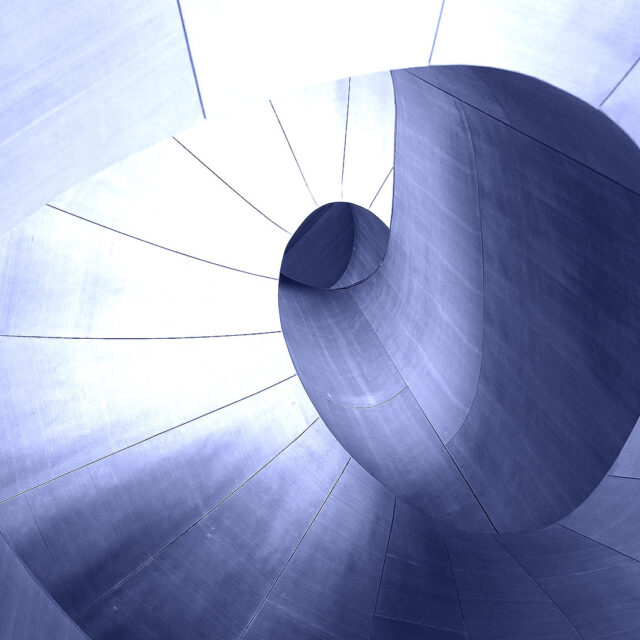Below, Prof. Willem Hoyng provides his unfiltered views on the decisions that were published on the website of the Unified Patent Court (“UPC”) last week. His comments offer a unique insight into the UPC’s case law, as he chairs the Advisory Board of the UPC and participated in drafting the Rules of Procedure of the UPC. Interested in more of this? Stay tuned and subscribe here for weekly updates.
For all decisions of the UPC’s Court of Appeal from the start in 2023 until 1 January 2025, Willem Hoyng’s more comprehensive summaries and comments are bundled in the book “Case law – Court of Appeal of the UPC 2023-2024”.
3 March 2025 (only reported last week)
Local Division Mannheim, X v Y
Saisie
Facts
X requests a saisie under Art. 60 UPCA and R. 192 RoP, arguing that infringement is highly probable. The opt-out of the patent has been withdrawn.
The JR
The order is rejected because the applicant failed to set out that there is a sufficient probability of infringement of the asserted claim. If a certain technical result can be achieved in multiple ways, the applicant has to submit facts that make it plausible that the technical result is reached by implementing the patented invention.
Comment
- This is an interesting decision, as the requirements for obtaining a saisie (ex parte) vary significantly between UPC countries. In France, no infringement case is generally started without a saisie, which is relatively easy to obtain (although in recent years, there has been a tendency to apply stricter requirements regarding proof of infringement). At the other end of the spectrum, Germany (which does not have a saisie tradition) has not seen much change after implementing Art. 7 of the Enforcement Directive, and saisies are rarely granted.
- In my opinion, an ex parte saisie is a very invasive measure, and a certain level of restraint is necessary to avoid fishing expeditions. I also believe it should be a last-resort measure—if the evidence can be obtained in a less invasive way, that option should be used first.
- I think the JR’s decision in this case is correct, as there was no actual evidence that the infringing method of achieving the patented technical result was used.
- I also believe that “plausibility” is the correct criterion. It lies somewhere between no evidence and the “more likely than not” test for obtaining a PI.
11 March 2025
Local Division Munich, Syngenta v Sumi
Revoking PI
Request
Sumi argues that Syngenta did not file a case on the merits in time. The 20 working days expired on 27 September, and the case on the merits was only started on 30 September.
The JR
Dismisses the request. Review by the panel.
The Court
- Misapplication of R. 15.2 RoP (“the Statement of Claim shall not be deemed to be lodged as long as the court fee has not been paid”).
- Nowhere R. 15.2 RoP states that the court fee must have been received.
- Moreover, R. 213.1 RoP states that a case on the merits “has started”. Filing the Statement of Claim is the start of the proceedings.
- Syngenta started the proceedings on time and has paid the fees in due time.
Comment
- Very good attitude of the Munich Division in interpreting the Rules in a way that keeps the PI alive.
- A wise lesson for representatives: note all critical deadlines in your diary, and for important (fatal) deadlines, set a reminder a week before the deadline arrives.
- What happens if you forget the deadline? Can you start a new PI? (what about the Urgency requirement, or ne bis in idem?) Better not get in that situation, but if so, start against other defendants (wholesalers etc.).
11 March 2025
Local Division Munich, Hurom v NUC
Applicable law
Background
1. Hurom alleges infringement in certain UPC countries (where the patent had been validated) and in Turkey, Poland, Spain, and the UK.
2. The Court separated the case for Poland, Spain, and the UK because, at the time of the hearing, the result of BSH Hausgeräte was not known (see separate order reported this week).
Decision
- The Court holds that there is no proof of infringement by the defendants (a Korean company) in Turkey.
- Art. 71(b)(3) Brussels Regulation (recast) (“BR”) does not provide jurisdiction, as there is no sufficient connection with a UPC member state.
- A defendant may raise lack of jurisdiction in their (first) defence brief instead of by way of a preliminary objection. Even if the wrong arguments are used, the Court should still consider the jurisdiction question.
- The UPC can deal with infringements that occurred before the UPC’s entry into force (see Art. 3(c) UPCA).
- The Local Division Mannheim is competent because the infringements take place in Germany.
- A request for an injunction can be general and does not have to be limited to the infringing product.
- The transfer of the patent is valid (so the defendant’s argument that the claimant was not the owner of the patent fails).
- The Court formulates the problems the patent solves and interprets the meaning of certain claim features in light of those solutions.
- The law applicable to infringing acts after 1 June 2023 is Art. 25 to 28 UPCA.
- Acts before the UPC’s entry into force will be judged according to national law, as retroactive effect without a specific provision is contrary to the Vienna Convention on the Law of Treaties.
- For alleged infringements that started before and continued after 1 June 2023, UPC law should apply unless this causes hardship for the defendant or claimant. However, it is up to them to provide evidence of national law being more favourable.
- Art. 26 UPCA includes acts that make infringement possible and support it.

